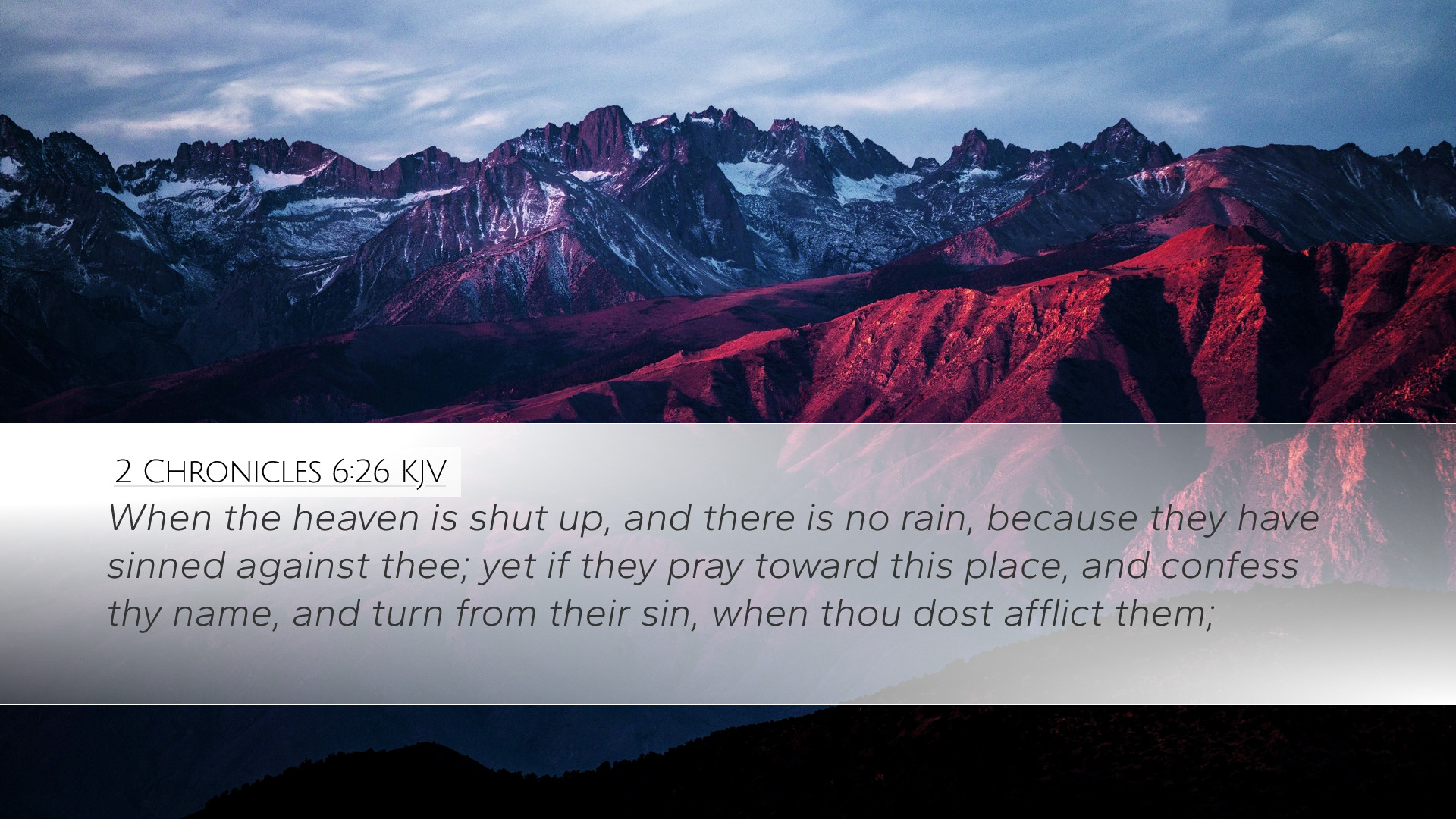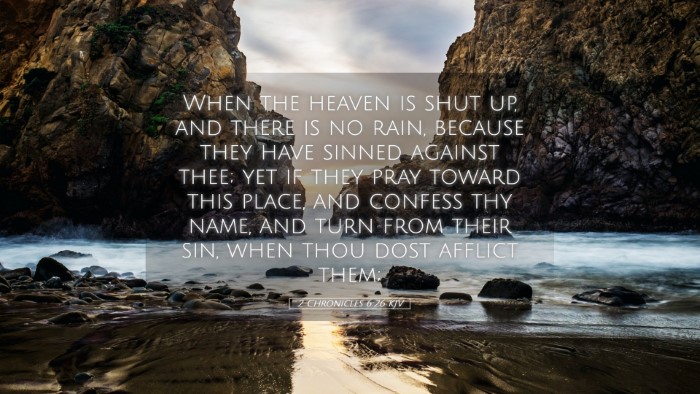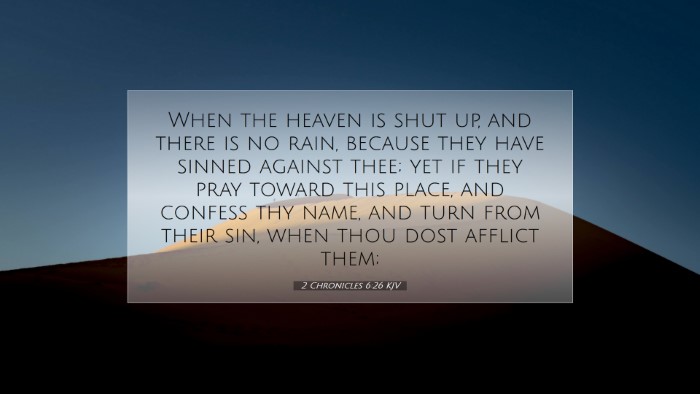Commentary on 2 Chronicles 6:26
2 Chronicles 6:26 states: "When the heaven is shut up, and there is no rain, because they have sinned against thee; if they pray toward this place, and confess thy name, and turn from their sin, when thou dost afflict them."
Contextual Background
This verse is part of Solomon's prayer of dedication for the temple, emphasizing the relationship between divine judgment, confession, and restoration. It reflects a critical theological understanding that sin can lead to divine retribution, manifested in calamities such as drought.
Theological Insights
The verse encapsulates a profound truth found throughout Scripture: the need for repentance. The cycle of sin, suffering, and supplication is prevalent in the lives of God's people. It serves to remind believers of their dependence on God's mercy and grace.
Afflicted by God: A Divine Response
Matthew Henry notes that the affliction mentioned here is a consequence of people's waywardness. When God's people stray from His commandments, He may use physical trials—like drought—as a means to bring them back to repentance.
Henry further points out that this verse signifies God's willingness to listen to the prayers of those who recognize their wrongs and turn back to Him. Such a turning of the heart is foundational for receiving divine forgiveness and restoration.
The Role of Prayer
Albert Barnes emphasizes the importance of prayer directed "toward this place"—the temple. This gives significance to the physical location of the temple as a sacred space for encounter with God. Prayer is an essential response to crises sent by God to draw His people back to Himself.
Barnes mentions that while the children of Israel may face judgment, their heartfelt prayers can invoke God's mercy. This teaches the faithful that prayer should be sincere, accompanied by a genuine confession of sin and a resolution to turn from wrongdoing.
Confession and Turn from Sin
Adam Clarke elaborates on the necessity of confession. He asserts that it is not enough to merely acknowledge wrongdoing; there must also be a turning away from sin. Clarke teaches that repentance is a change of mind and heart that leads to a transformational life aligned with God’s commands.
Moreover, Clarke reinforces the notion that God's chastisement aims ultimately at the restoration of His people, as they come to realize their need for Him amidst their struggles.
Practical Applications
For pastors and church leaders, this verse offers critical lessons on the importance of intercessory prayer and the call to repentance among their congregations. Here are some applications:
- Encourage Public Confession: Create environments where congregants can openly confess sins, acknowledging shortcomings before God.
- Teach About Divine Chastisement: Help believers understand that difficulties may result from spiritual disobedience, encouraging them to seek God’s counsel during tough times.
- Integrate Prayer into Worship: Ensure that prayer is a fundamental part of services, focusing on turning back to God and seeking His forgiveness.
Conclusion
2 Chronicles 6:26 serves as a poignant reminder of the relationship between affliction, prayer, and restoration in the life of the believer. It calls for awareness of the consequences of sin and the necessity for genuine repentance and a return to God. Through various public domain commentaries, we glean that prayer is not a mere ritual but a powerful means to invoke God's mercy, particularly when we recognize our need for Him in times of crisis.


